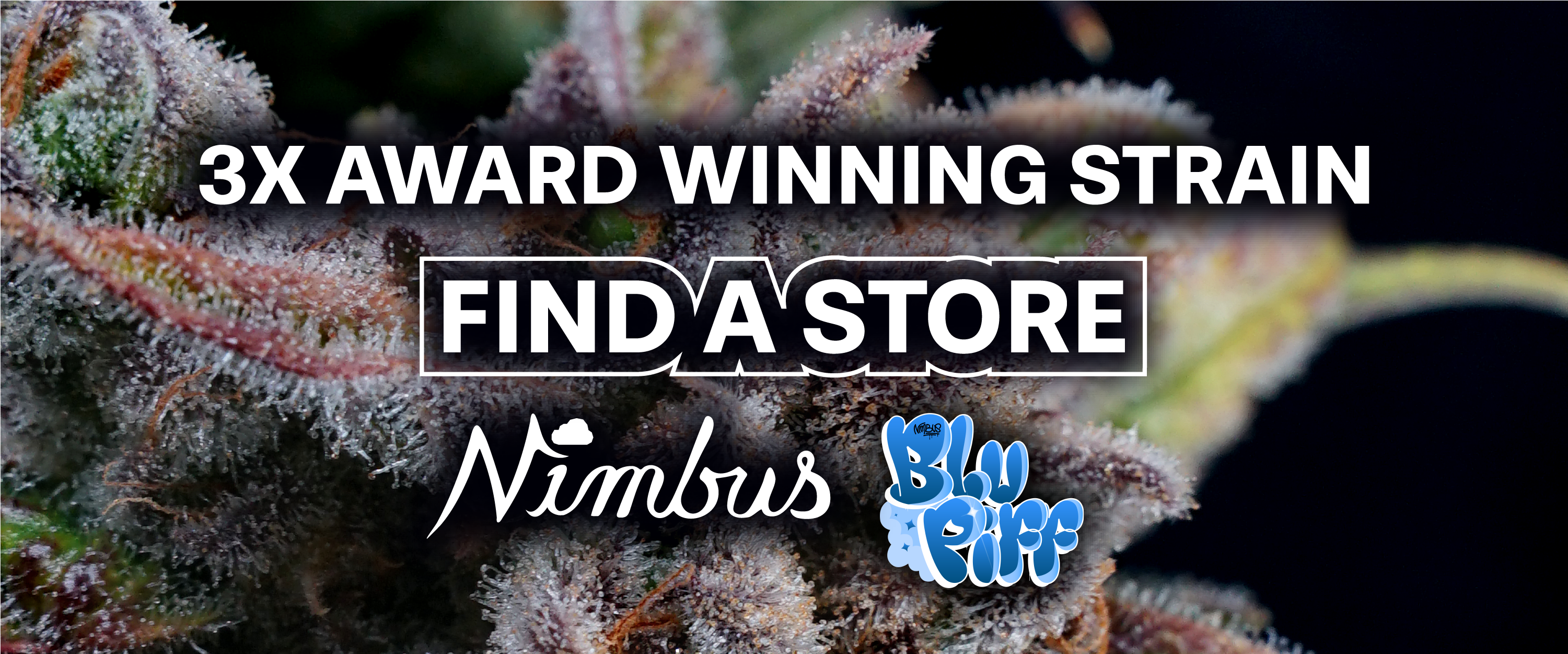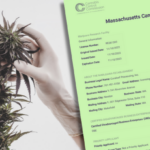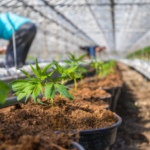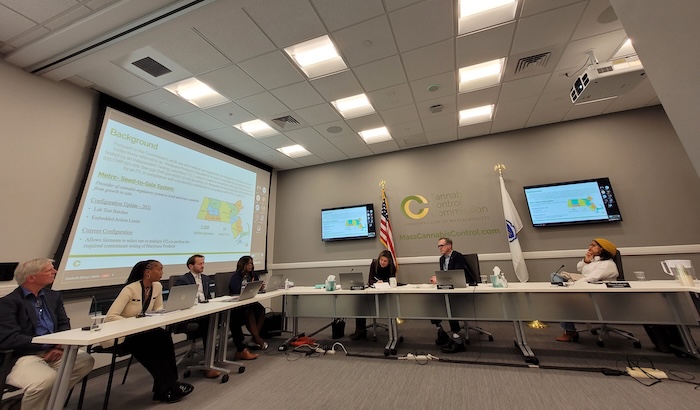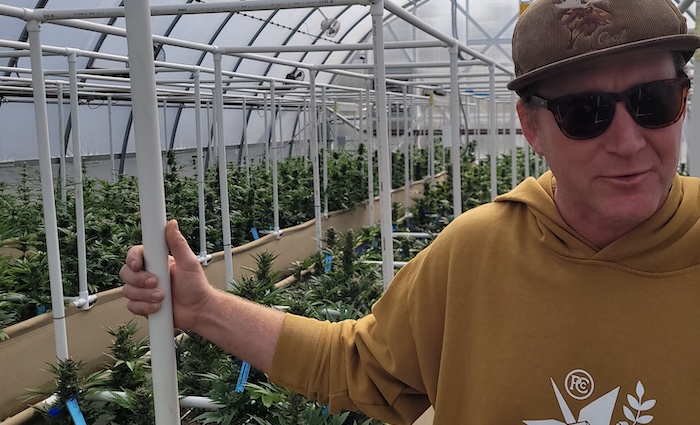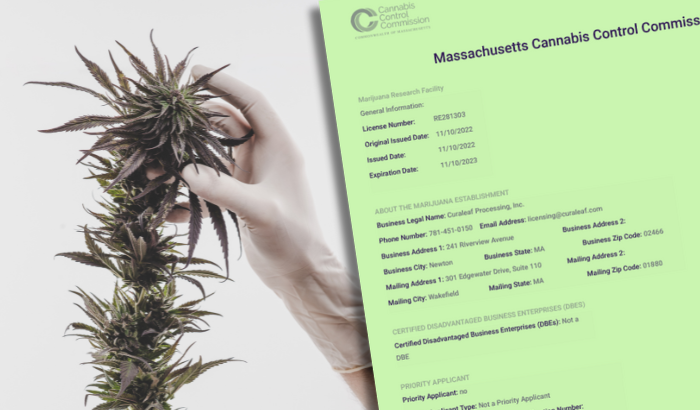
A portion of Gov. Charlie Baker’s vape ban that covers medical cannabis vapes was set to be lifted at 12:01 am on Tuesday in the absence of either a court injunction, which was unlikely, or a quarantine order issued by Cannabis Control Commission Executive Director Shawn Collins based on evidence of a specific product (or products) posing a risk to public health. At the last minute, the CCC issued the following notice:
Following a Superior Court ruling and investigative findings from the US Centers for Diseases Control and Prevention (CDC), the Cannabis Control Commission (Commission) on Tuesday issued a quarantine order for marijuana products and devices that rely on vaporization or aerosolization, including, but not limited to, vape pens, vape cartridges, aerosol products, and inhalers, in order to protect the public health, safety, and welfare of the citizens of Massachusetts. The Commission’s quarantine order does not apply to medical-use marijuana vaping devices designed exclusively for marijuana flower.
This was in part the outcome of a somewhat contentious hearing of the CCC last Thursday, during which the commission indicated it would allow Baker’s ban on medical vape products to lift. Heading into last week’s hearing, a court ruling mandated that the existing ban on medical vape products would expire unless the CCC were to enact a ban (or administrative quarantine) before a court-ordered deadline this week. That ruling came from Judge Douglas Wilkins, who wrote of the current ban on medical cannabis vape products, issued by the Massachusetts Department of Public Health, “[t]he legislature did not want DPH to regulate medical marijuana, but the Emergency Regulations do just that.”
Wilkins also went one step further, questioning if the CCC has the authority to ban medical cannabis vape products. DPH regulations mandate that “registered marijuana dispensaries … must make vaporizers available for sale to registered qualifying patients,” and Wilkins noted, “[a] similar regulation was later adopted by the CCC as part of its current regulations (935 CMR Section 501.100 (1)(c) (2019).”
Following that landmark ruling, the CCC was compelled to take up the issue of the ban on medical cannabis vapes at Thursday’s hearing. During a debate over a motion to reconsider current regulations related to cannabis vaping, CCC Chairman Steve Hoffman suggested that a quarantine of vape products be enacted by the CCC, even without evidence of harm, to prevent the ban on medical vape products from lifting on Tuesday. Each of the four other commissioners—Shaleen Title, Jennifer Flanagan, Kay Doyle, and Britte McBride—objected to the chair’s request on the grounds that taking such a step, absent compelling evidence of a specific product (or products) causing harm, would be counterproductive and potentially undermine the existing regulatory framework that exists to ensure consumer safety.
Following that discussion, the commission voted in favor of a motion to begin the process of reviewing its current regulations related to cannabis vape products. The motion also reaffirms that the executive director of the CCC has the authority to initiate a quarantine of cannabis products should there be evidence to justify such an action.
Collins, the current executive director, committed to considering a quarantine of vaping products should evidence be presented to support such an approach. If that evidence exists, Collins said he would potentially issue such a quarantine that would apply only to oil-based medical cannabis vapes, rather than flower vapes, as he wound up doing. Related to that quarantine, at the request of Commissioner Title, Collins agreed to formally request that the DPH present to the commission any relevant evidence that would support or negate the need for a potential quarantine of medical cannabis vape products.
Speaking to reporters after the hearing, Title expressed a concern that banning legal products, in the absence of specific evidence that a product has caused harm, would expose medical patients to a higher degree of risk should they begin to seek out unregulated alternatives.
“If we are going to make a decision, particularly if that decision limits availability of regulated products, we need to be clear about the fact that that may send people to the illicit market.” Title explained, “The CDC has noted that the majority of cases at this point are linked to illicit THC products and that illicit THC products play a major role in this outbreak. It is important for us to consider that and to make our decisions understanding that any action is going to have consequences.”
To that end, the Baker administration has announced a public hearing on those portions of the vape ban still in effect for Friday, Nov 22 (exact time and location to be announced). Public comment will be accepted during the hearing, which is expected to draw large crowds of community activists, small business and industry stakeholders alike. Such groups have spent weeks organizing protests, lawsuits, and other public demonstrations to express their opposition to Baker’s emergency declaration, and the hearing will present an opportunity for those groups to bring their concerns directly to the governor for the first time.
Grant Smith is a Massachusetts medical cannabis patient, founder of Mass Patients for Home Delivery, and a contributor to midnightmass.substack.com and The Young Jurks. You can listen to The Young Jurks at anchor.fm/theyoungjurks or wherever else podcasts are streamed. This article was produced with support from Midnight Mass and The Young Jurks, where your contributions are greatly appreciated and help us deliver more local coverage.


